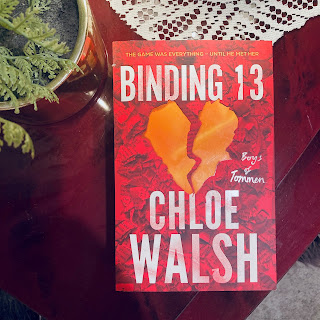Corella Press Blog Tour
Hi Everyone, today I am absolutely delighted to be a part of the Corella Press Blog Tour. Corella Press is an exciting new not for profit imprint from the University of Queensland. In this post, Despina Kalatzis gives us an interesting behind the scenes glimpse of her journey into the publishing industry through Corella Press. I loved her story and I hope that you do too ~ Kathryn.
Corella PressTM
BLOG TOUR
My experience with Corella PressTM has given me a keen insight into how the writing, editing and publishing industry operates. Corella PressTM instilled in me the professionalism and self- confidence to partake in various facets of the publishing industry—from acquisitions, to transcription and editing of a nineteenth century manuscript, to marketing and launch preparation. This internship fostered my ability to balance a leadership role, as well as a peer role. Corella PressTM reinforced the importance of working within a highly collaborative team that had a bee-hive mentality, but also one that bolstered independence and responsibility when required.
At the beginning of this year, I was a recipient of an email that Kim Wilkins sent out notifying students of internship positions at Corella PressTM. As having already been a Corella PressTM intern last year, I emailed Kim to see if I could re-join the team. With a joyful, encouraging and supportive reply, both Kim and Meg said they would be more than happy to have me back on board. So, in the induction internship interview with Meg, I expressed my keenness to partake in an editorial or proofing role. Meg suggested that I take on the role of editorial leader, which meant that I would primarily manage the editorial schedule, be in charge of liaising with the whole team from transcription right to the onset of proofing, as well as streamlining any concerns that may arise. This was a lot of responsibility and I was quite nervous but more than ready to take on the challenge.
For our first production meeting, Meg explained the working schedule for the upcoming semester and where we aimed to be at the end: a book launch (or two). As a returning team member, I felt that I was more confident and prepared to showcase my skills and knowledge than the previous year. At first, I almost took my previous experience as advantageous in that I was more prepared than the other interns coming in with fresh eyes. I soon realised that my previous experience with Corella PressTM in fact put more of a burden on my shoulders as I was the figure looked towards for guidance when Meg was unavailable. It was a daunting yet exciting pseudo-role to step into, one where I was relied upon and confided in for crosschecking tasks that ranged from minor upkeep of documents to major editorial decisions. While I later took on the significant role as head editorial leader, it was extremely important to me that I delicately navigate the lines of being a leader, but also an equal team member and peer. This was a first-hand opportunity to learn how to develop my work ethic, particularly in professional practices towards in-house relationships.
The first weeks at Corella PressTM were oriented towards learning the necessary procedures attached to the book production process. As we only had one production meeting each week, it was vital that we maintain a strong work ethic to ensure all tasks were completed. One of the major goals at the beginning of the internship was to gather a short-list that would then contribute to our acquisitions proposal. The production meeting for that week exclusively focused on learning how to write, present and participate in an acquisitions pitch and how this functioned as a vital stage in the publishing industry. The following week, we were to showcase and present our findings to Dr Richard Newsome (Acting Director of WEP).
I avidly avoid any form of public speaking. Through Corella PressTM, I have learnt that presentation skills are essential in confident communication with all stakeholders in the publishing industry—I was unaware that even an editorial role involved presenting, such as pitching a short list in an acquisitions meeting. Naturally, I was confronted by the idea of presenting not only to my peers, but an authoritative figure. When the acquisitions pitch came, it was a personal challenge that I overcome my lack of confidence to present and play my part as a team member. I was in charge of writing and presenting the ‘Negatives’ section on The Millwood Mystery and how a press would navigate issues of sensitive content and price bracketing. After my pitch, Richard asked questions as to the contemporary marketplace and how Corella PressTM might address the underlying content of our crime story. I felt confident in my replies and his eager nodding affirmed that I was an equally important voice in the room. On recalling the experience, I know that it was not the smoothest of performances, but exposure to a mock-pitch scenario underlined my lack of ability to assertively communicate. Through Corella PressTM, I have partaken in real publishing practices and been given a supportive platform in which to refine my presentational skills.
One of the most rewarding experiences during my internship was the ability to lead the editorial process for The Millwood Mystery. This role included liaising with each intern in the group, delegating edits and employing a systematic work ethic that ensured editorial requirements were met as per the schedule. This role relied upon my ability to ensure time-management and open communication networks. It was essential that I be able to concisely synthesise ideas to then pass on to the team. During the whole editorial process, two central issues arose. Firstly, edits were completed digitally on Word, using review notes and track changes. It was clear, by the second copy edit, that some interns were not versed in how to use track changes, which created several formatting and editorial issues that I had to then resolve. Secondly, at times I felt rapport with my peers was difficult to maintain as each intern had their own individual way of approaching editing. As a team, we needed to sustain press-wide cohesiveness to ensure consistency and precision with our manuscript. In order to address this, in the production meetings during this time I would present an oral editorial report/debrief as to where the manuscript sat. This gave me an opportunity to collectively advise on the editorial approach and ensure that as a press we were maintaining the authorial voice of Lockett, as opposed to inadvertently imposing our own individual writing and editing styles. This experience not only helped me to foster professional and personal rapport with my peers, but was an empowering role for me: I am proud of how I conducted myself in effectively getting my team through each week’s new goal in terms of the editorial requirements and creating a whole manuscript that was ready to enter the proofing phase.
During the internship, I identified an opportunity to streamline a workplace practice that I felt a personal drive to take on as an independent challenge. Simultaneously, our first assessment for our internship was a Case Study in which we were to target a workplace concern and recommend an opportunity for improvement. The area I chose to write about, was to streamline the digital editorial process by implementing workshops specifically related to the use of track changes. I thought I would transfer my theoretical findings and implement them directly to my Corella PressTM experience. An area that I targeted for improvement was the Corella PressTMStyle Guide. Until then, the Style Guide was largely on the GANTT spreadsheet, as summarised guidelines and dot points. However, this was not a comprehensive overview of all aspects of the editorial and proofing process, particularly how to approach track changes. I took this as an opportunity to showcase and present my professional writing abilities.
I created an entirely fresh Style Guide that used the skeleton provided by the first editorial team. Yet, this Style Guide collated all Corella-related editorial requirements, including sections on both Mary Helena Fortune and Jeannie Lockett. I also added a separate section that was dedicated to the digital editing process—how to use Word’s review panel and how to operate track changes. I am thoroughly proud with the Style Guide I created and the encouragement of my peers and Meg re-affirmed that my hard work was benefiting the team. On recalling the experience, I was able to demonstrate my ability to critically identify a workplace weakness and to effectively transfer theoretical frameworks into a real workplace situation.
I have grown so much from that first nervous day. Over the course of the semester, I have felt encouraged, empowered and supported by the Corella PressTM Team. This opportunity has been pivotal in my development as a publishing industry professional, allowing me to implement my theoretical knowledge and practices into a real press scenario. The inclusivity of the team and my superiors has given me a supportive environment to showcase my professional and personal commitment to the intricacy attached to the book production process. Corella PressTM has been an equally comforting yet challenging internship. I am now a self- assured and devoted emerging industry professional who is more than ready to begin my journey into the writing, editing and publishing industry.
BY DESPINA KALATZIS
(Masters of Writing, Editing and Publishing at UQ)




Comments